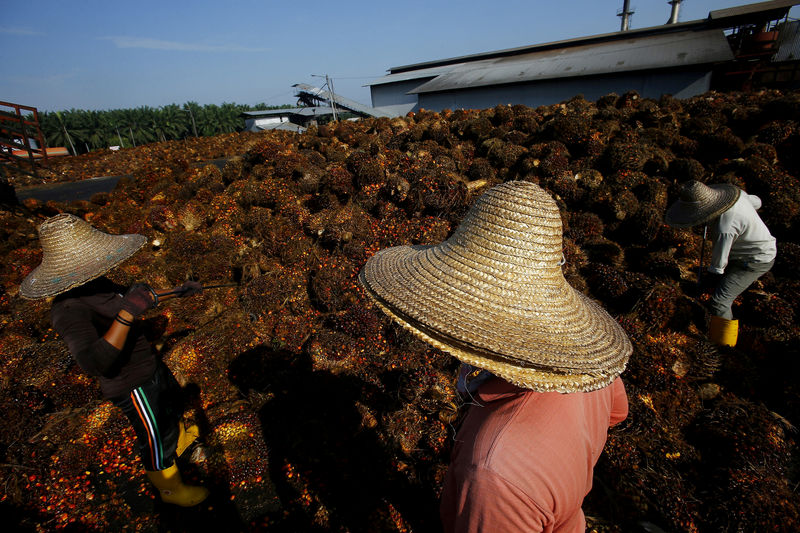KUALA LUMPUR (Reuters) - Norway's plans to ban biofuels containing palm oil from 2020 are set to provide a major obstacle to long-running trade talks between the European Free Trade Association (EFTA) and Malaysia, a Kuala Lumpur government minister said on Friday.
A Norwegian parliament recommendation to ban biodiesel "with high deforestation risk" was included in a budget for EFTA member Norway approved in Oslo earlier this month.
Palm oil is used as feedstock for the making of biodiesel, as well as in everything from cookies and soap to lipstick. The palm oil industry is often linked by environmental groups with deforestation and displacement of wildlife and indigenous communities.
"The stand taken by Norway against palm oil will adversely affect bilateral trade relations between Malaysia and the European Free Trade Association," Malaysia's primary industries minister Teresa Kok said in a statement. Malaysia's last round of trade negotiations with EFTA was in May 2017.
"We view this as unfair and unjust, going against free and fair trade, and is certainly not something we will take lightly," said Kok, adding that it would be a major obstacle towards a successful conclusion of partnership talks.
Last week, Kok also complained that a move by the French parliament to exclude palm oil as an approved biodiesel feedstock was an unwelcome decision that went against free trade and would impact the livelihood of Malaysian farmers.
Earlier this year, Malaysia and Indonesia criticized the European Union for backing a ban on the use of palm oil in biofuels from 2021. Indonesia and Malaysia produce nearly 90 percent of global palm oil.

EU negotiators later agreed that palm oil usage in transport fuels would be capped at 2019 levels until 2023, and reduced to zero by 2030.